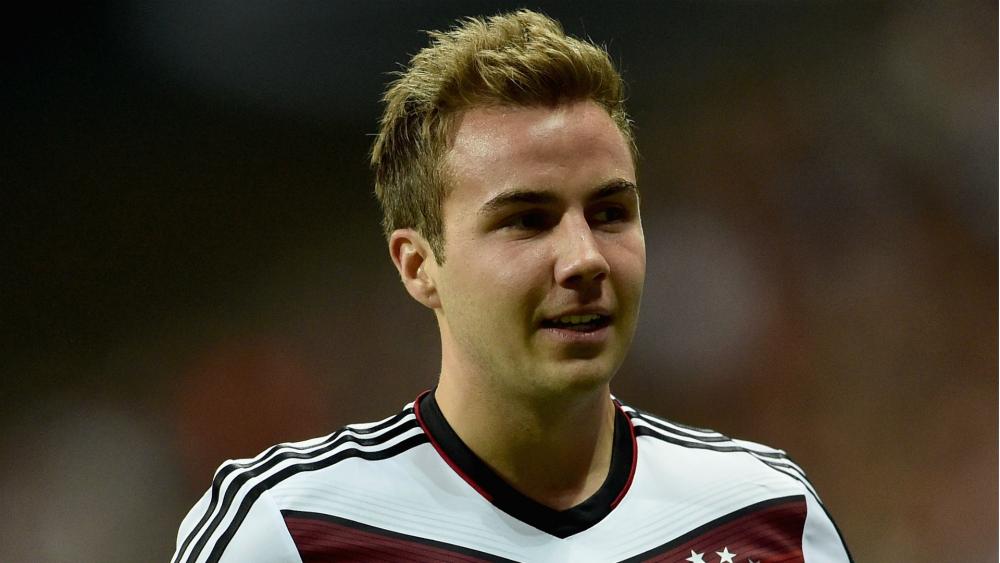Euro 2024 stadiums: Host cities, capacities, and everything you need to know
The Euro 2024 stadiums are known - and strangely there will be more than at the World Cup in Qatar
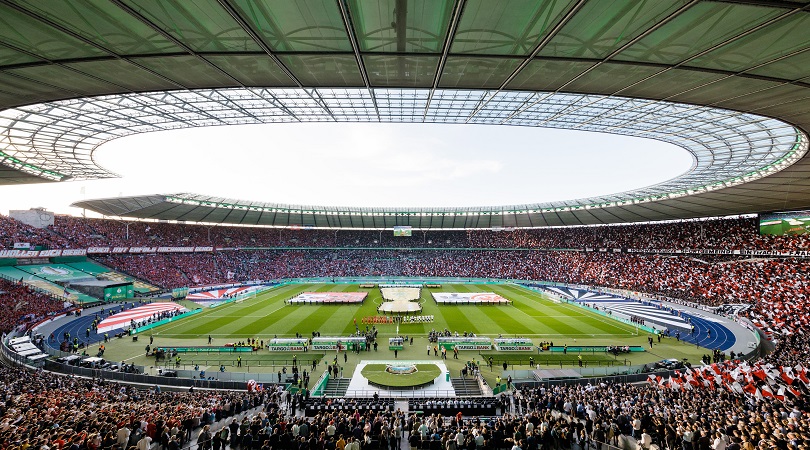
Ten Euro 2024 stadiums have been confirmed by UEFA, as we continue to countdown towards this summer's finals in Germany.
Set to begin on June 14 with Julian Nagelsmann's side taking on Scotland in Munich, the competition will run for a little over a month before culminating on July 14 with the final in Berlin.
Here, FourFourTwo gives you the lowdown on all 10 host venues at Euro 2024 – as some of these feature on FFT's best stadiums in the world – with a little bit of information on each to shock your mates in the pub...
VIDEO: Euro 2024 Stadiums
Euro 2024 stadiums
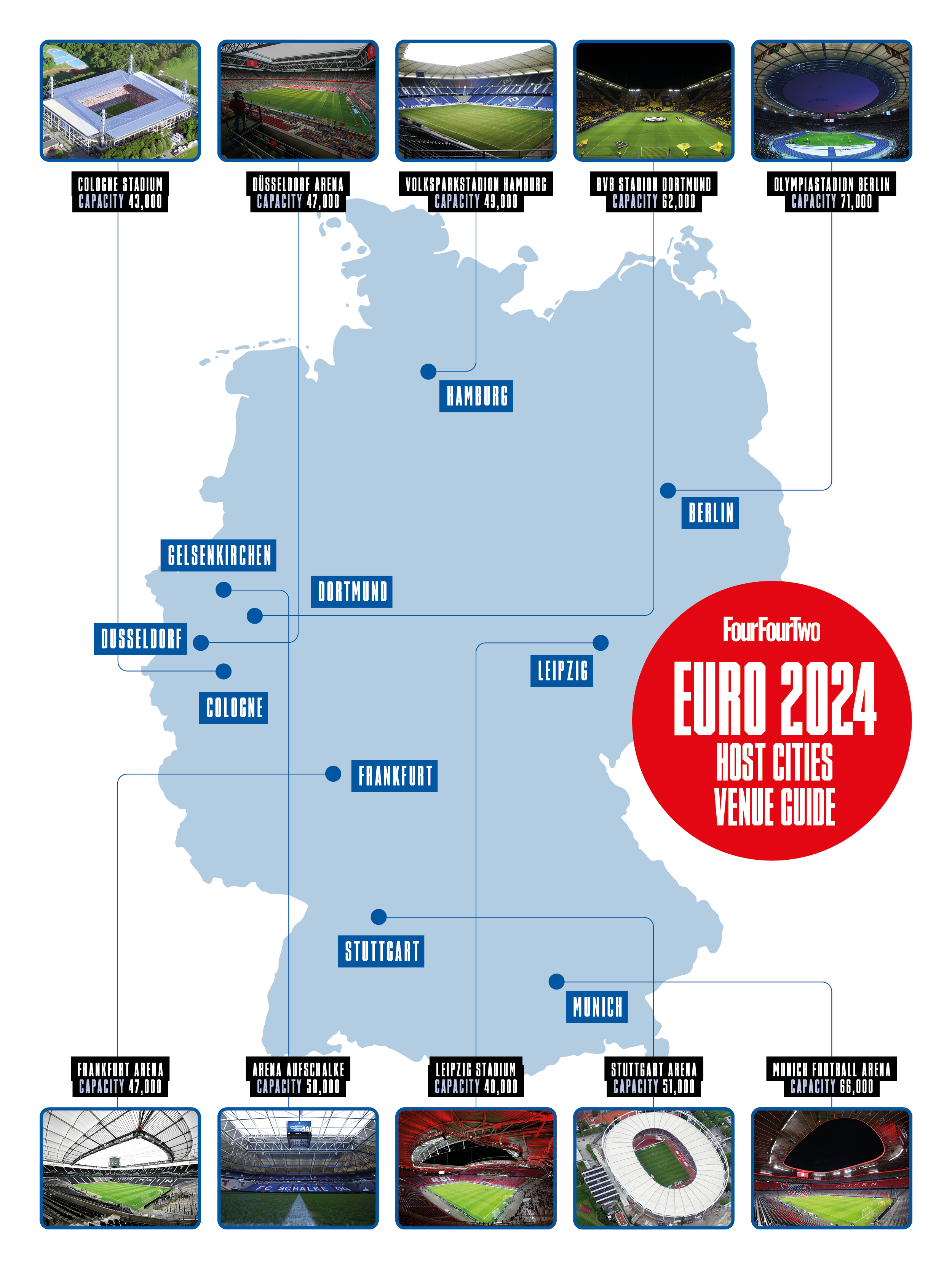
Following the latest season in German football, one bizarre stat stands out especially: half of the stadiums featuring at Euro 2024 are the home of 2.Bundesliga sides, the second division in Germany.
Indeed, Schalke, Hamburg, Fortuna Dusseldorf, Koln and Hertha Berlin all play their football Euro 2024 stadiums, despite not featuring in the German top flight for the 2024/25 season. Koln were relegated this season, while Fortuna Dusseldorf threw away a 3-0 lead in the play-offs which saw Bochum retain their Bundesliga status for next term.
Berlin
1. Olympiastadion, Berlin
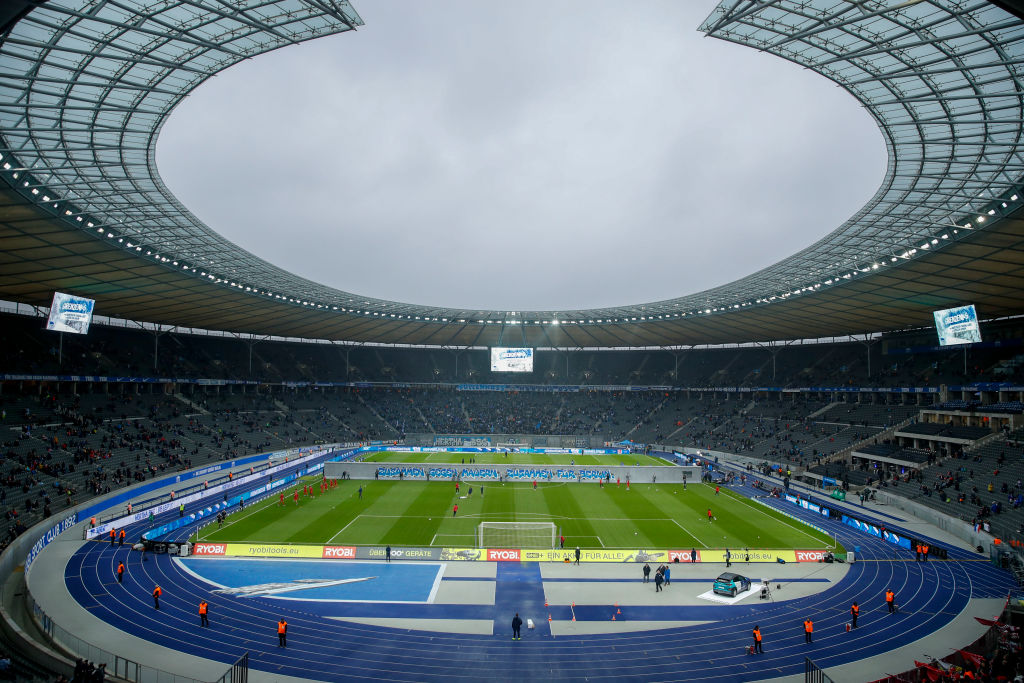
Opened: 1936
Capacity: 71,000
Club: Hertha Berlin
Euro 2024 highlight: Final
Get FourFourTwo Newsletter
The best features, fun and footballing quizzes, straight to your inbox every week.
Germany used to have an Olympic Stadium in Munich – where Bayern Munich previously played – but the Olympiastadion in the country's capital has darker roots. The old Olympic Stadium was the venue of the 1936 Olympic Games, used as a propaganda vehicle for Adolf Hitler's vision of the nation.
Since rebuilt, this was the showpiece of the 2006 World Cup which showcased a very different Germany. A unified nation delivered one of the best tournaments in modern memory, with this beautiful ground hosting the final, complete with Marco Materazzi getting headbutted by Zinedine Zidane.
It's a shame that Berlin's other ground – Union Berlin's Stadion An der Alten Forsterei – isn't hosting games, as that stadium has real charm. But as modern bowls go, this is an absolute beauty.
Did you know? Germany's biggest all-seater has hosted the 2006 World Cup Final, Usain Bolt's 100m and 200m world records and a Pope Benedict mass in 2011.
Cologne
2. RheinEnergieStadion, Cologne
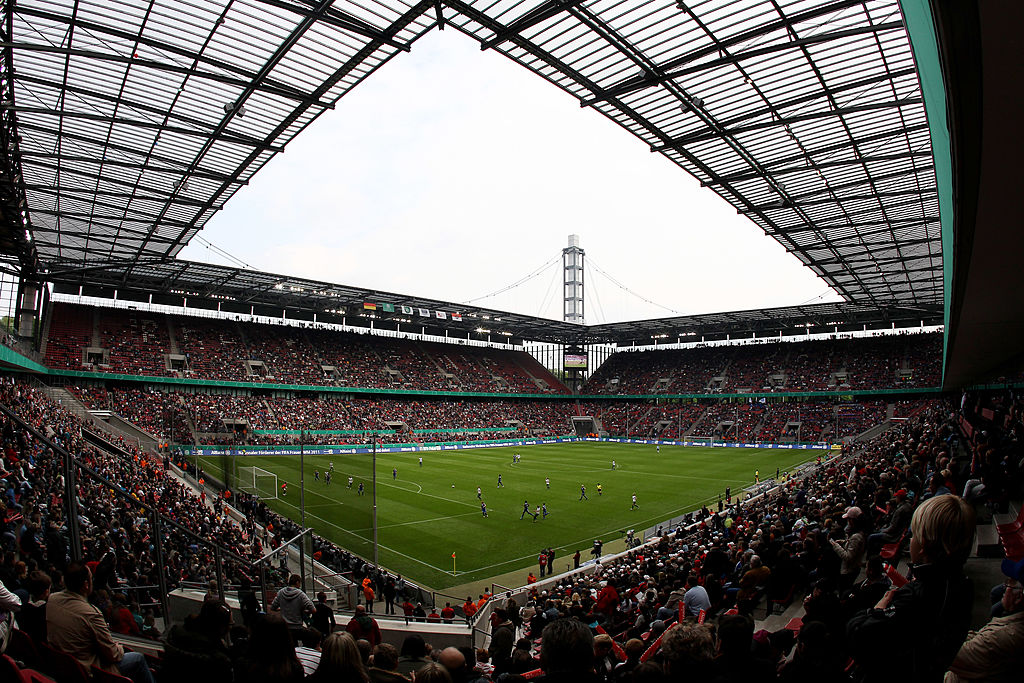
Opened: 2004
Capacity: 43,000
Club: FC Köln
Euro 2024 highlight: England vs Slovenia
England rocked up in Cologne in 2006 at a newly-renovated RheinEnergieStadion for a clash against Sweden. 18 years after that clash, they'll be taking on Slovenia in the same ground at Euro 2024.
Cologne is a beautiful city with a cathderal that has two spires and one of the most envied Christmas markets in the whole of Europe. But outside of winter-time, it's best remembered for the lockdown Europa League final of 2020, in which Sevilla beat Inter Milan 3-2.
Did you know? Rebuilt for the 2006 World Cup, Köln's home is easy to spot with four illuminated corner towers. It has given the Rolling Stones shelter five times.
Dortmund
3. Westfalenstadion, Dortmund
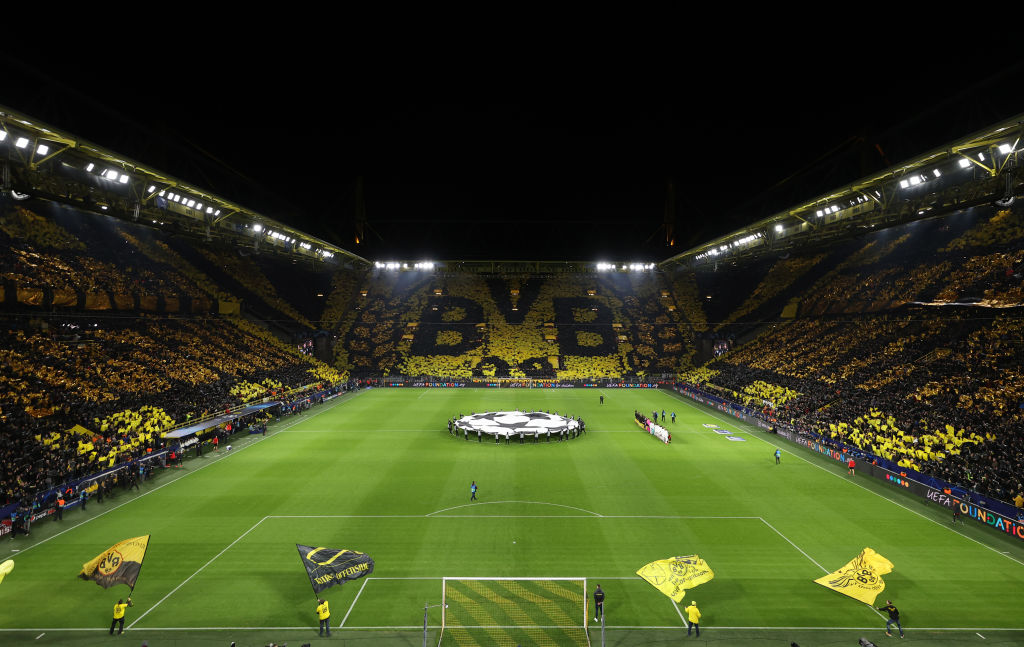
Opened: 1974
Capacity: 62,000
Club: Borussia Dortmund
Euro 2024 highlight: Semi-final
One of the most celebrated stadiums in the whole world, the Westfalenstadion is a sight to behold when fully bouncing. The Yellow Wall is one of the most iconic views in football and it simply wouldn't be a German tournament without this ground hosting at least a fixture or two.
It's been the venue for plenty of BVB triumphs – and a fair few neutral moments, too. This is where Johan Cruyff performed his 1974 turn against Sweden, Liverpool beat Alaves here 5-4 in perhaps the most thrilling UEFA Cup final ever in 2001 and in 2006, it saw Italy defeat Germany in the World Cup semi-finals.
Did you know? A subterranean unexploded bomb delayed an early-noughties rebuild. The Yellow Wall terrace-Europe's biggest for standing-will be all-seater.
Dusseldorf
4. Merkur Spiel-Arena, Dusseldorf
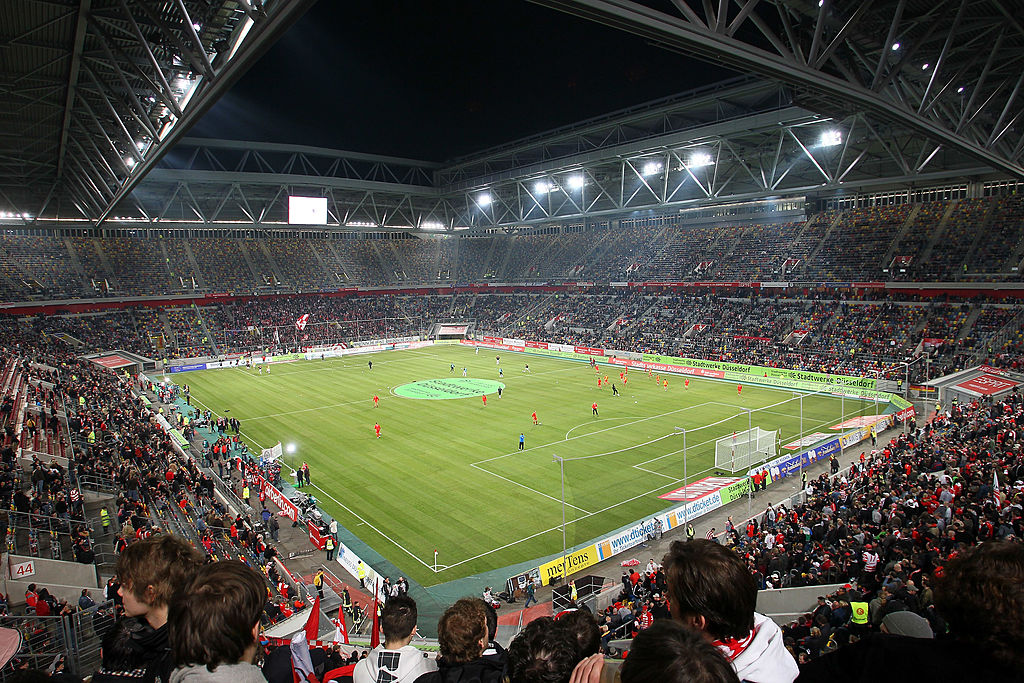
Opened: 2004
Capacity: 47,000
Club: Fortuna Dusseldorf
Euro 2024 highlight: Quarter-final
The Merkur Spiel-Arena is finally getting its time to shine. The Dusseldorf stadium never did get to hold a game in the 2006 World Cup – despite being opened in 2005.
Back then, Germany opened the ground with a 2-2 draw with Argentina, while in 2022, the USA and Japan met for a friendly. Fortuna Dusseldorf's middling status has meant that few classics have happened under this roof: is this finally the year that the Merkur Spiel-Arena sees some real magic? Games between Austria and France, Slovakia and Ukraine and Albania and Spain suggest not – but you never know with a quarter-final later in the competition…
Did you know? Azerbaijan won Eurovision here in 2011 and Tyson Fury the world heavyweight title in 2015-it's multi-purpose (evidently), with a retractable roof.
Frankfurt
5. Waldstadion, Frankfurt
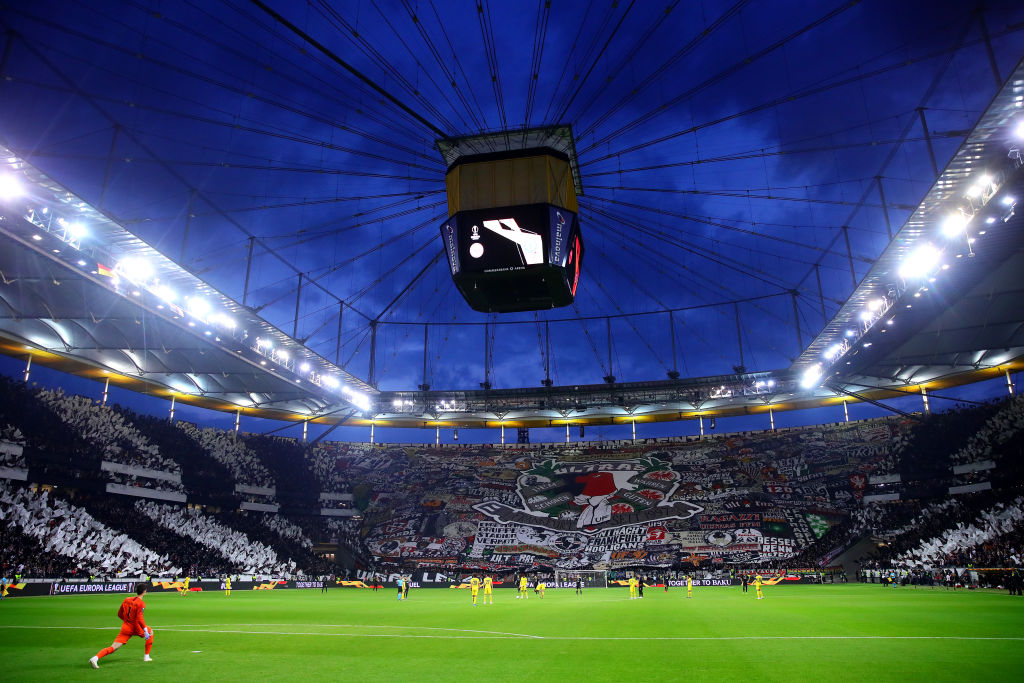
Opened: 1925
Capacity: 47,000
Club: Eintracht Frankfurt
Euro 2024 highlight: Denmark vs England
Originally built in the 1920s on the site of a former military shooting range, the Waldstadion included a fairground, an integrated velodrome and swimming park, ahead of the German football championship's final in 1925. Plenty has changed since.
As one of the oldest stadiums in German football, Eintracht's old home has been rebuild and reshaped plenty since, hosting the 1974 World Cup, the 1980 UEFA Cup final, Euro 88 and, of course, the 2006 World Cup. It was the venue of Zinedine Zidane's iconic performance against Brazil that year – and was the scene of the United States' 2011 Women's World Cup win.
Did you know? The venerable arena has witnessed Muhammad Ali defending his world title against Kart Mildenberger in 1966 and four Depeche Mode concerts.
Gelsenkirchen
6. Arena AufSchalke, Gelsenkirchen
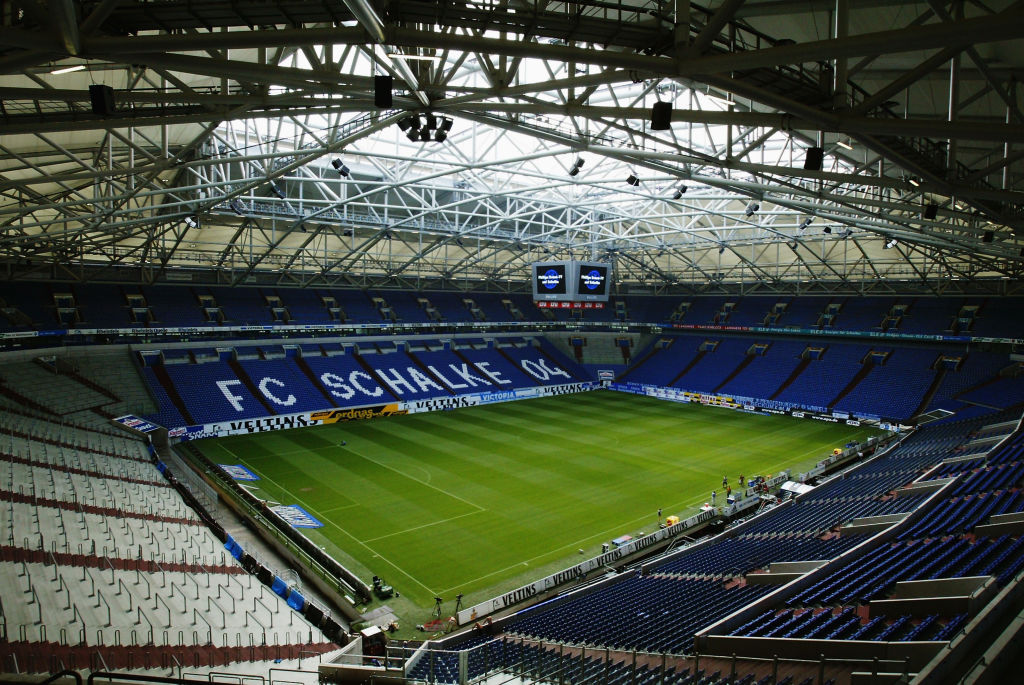
Opened: 2001
Capacity: 50,000
Club: Schalke
Euro 2024 highlight: Spain vs Italy
One of Europe's most identifiable stadiums, the world was entranced by this beautiful dome at the 2004 Champions League final, with its fibreglass roof and suspended screen-cube above the pitch.
The AufSchalke was also the scene of Cristiano Ronaldo winking to the bench following Wayne Rooney's red card at the 2006 World Cup. A big inspiration for the Friends Arena in Sweden, it's just a shame that this ground has overseen its tenants, Schalke, enduring a slow demise in recent seasons. It's a stadium fit for kings, after all.
Did you know? Built (carefully) above disused shafts in the proud mining city, it has a retractable roof and pitch, on an 11,000-tonne track. Looks a bit like a woodlouse.
Hamburg
7. Volksparkstadion, Hamburg
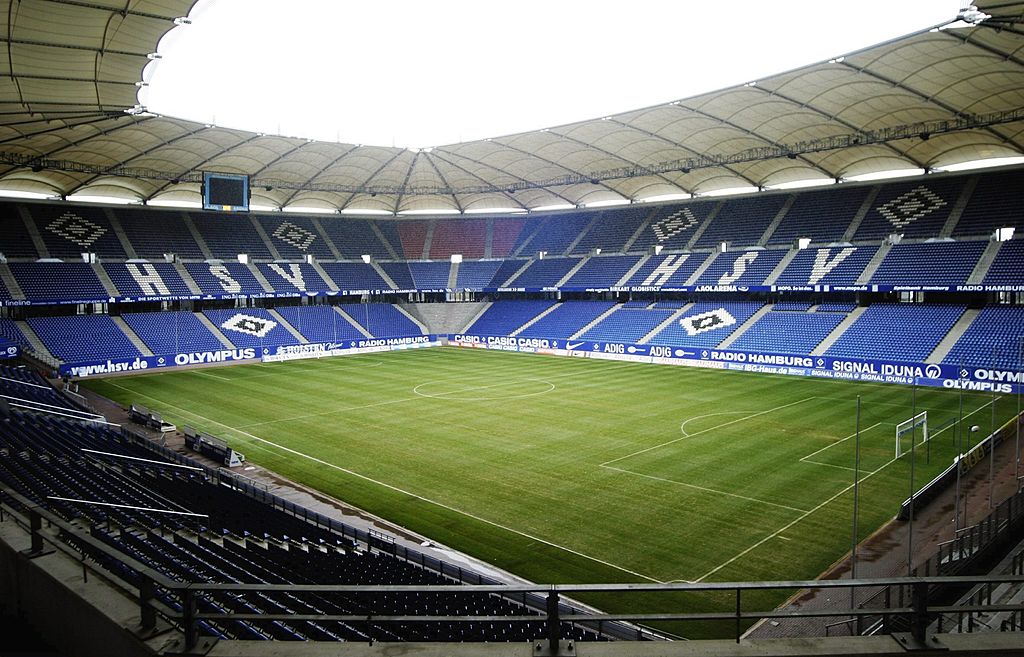
Opened: 2000
Capacity: 49,000
Club: Hamburg
Euro 2024 highlight: Quarter-final
Another grand palace of a stadium currently home to a side in the second tier, the Volksparkstadion is hoping to host some classics this summer to distract itself from troubles.
Shakhtar Donetsk have used the ground as a temporary base during the horror of war, Fulham fans will remember this place as the scene of their biggest heartbreak (the 2010 Europa League final defeat), while West Germans have unhappy Euros memories of Hamburg, since this is where they lost the semi-final in the last Championship they hosted, back in 1988. Still give it a couple of weeks after the Euros ends and Taylor Swift will be here.
Did you know? The People's Park's eras span a 1925 build, 1953 refit and 90-degree rotation in 2000. Taylor Swift plays here in July, after a Cruel Summer for some teams.
Leipzig
8. Red Bull Arena, Leipzig
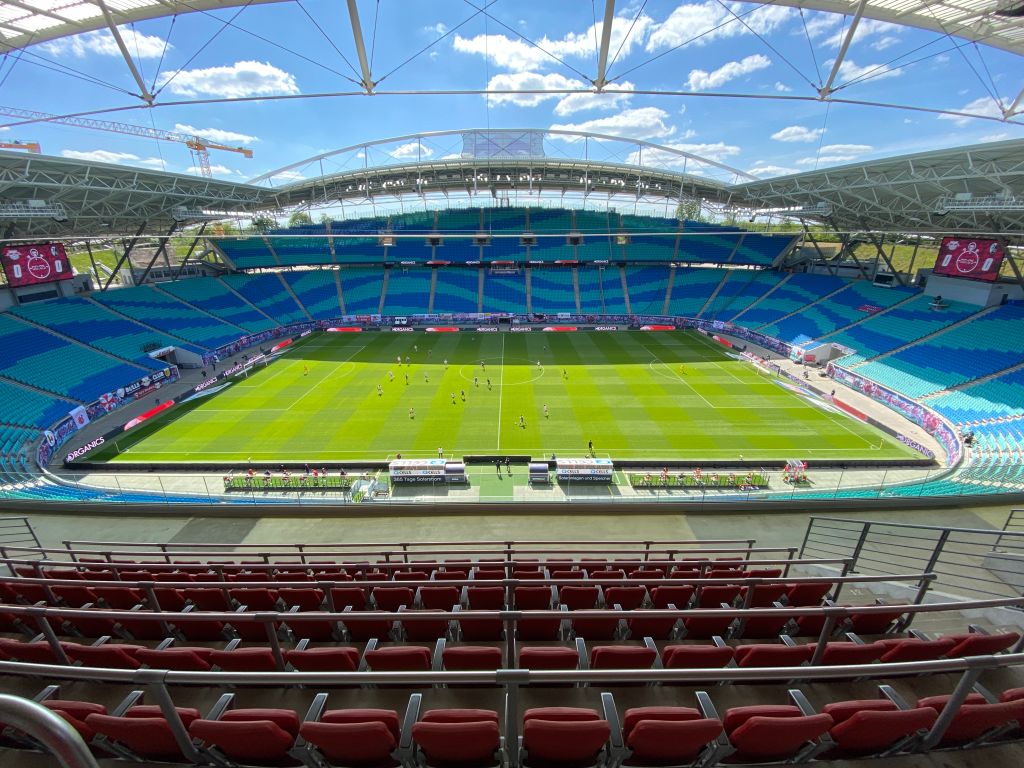
Opened: 2004
Capacity: 40,000
Club: RB Leipzig
Euro 2024 highlight: Netherlands vs France
Previously the Zentralstadion, this was one of the biggest stadiums in Europe, able to accomodate 100,000 and acting as a base for whichever teams have been established in Leipzig. With Red Bull now having cemented the real giants of the area, it's firmly East Germany's premier venue, now.
The arena will only host four games at the Euros but with Portugal playing Czech Republic, Netherlands taking on France and Croatia facing Italy, there's potential for fireworks in Leipzig at this tournament.
Did you know? East Germany's only Euro 2024 venue, on the disused Zentralstadion site, is also home to RB Leipzig matches and Coldplay gigs. Can't have it all.
Munich
9. Allianz Arena, Munich

Opened: 2005
Capacity: 66,000
Club: Bayern Munich
Euro 2024 highlight: Semi-final
One of the most picturesque exteriors of any stadium in the whole world, the Allianz Arena opened a year before the 2006 World Cup as a bold, brave new symbol of what German football could be: bright, exciting and incredibly fun.
1860 Munich have long since departed and the outside of this ground has lit up in all sorts: pride flags and stars and stripes included. This will be the first stadium to have hosted games in consecutive Euros – given that the Allianz was home for Germany in four games at Euro 2020 before their defeat to England at Wembley – and it's something of a home stadium for Die Mannschaft these days… despite the official line that the national side tour the country.
With Scotland up first against Deutschland in Munich, the stage is set for Euro 2024. The Allianz will also host a semi-final, too, as one of the most majestic arenas of sport is centre-stage once more.
Did you know? The illuminated exterior of 3,000 inflatable plastic panels was a world first. It hosted Germany's first regular season NFL game (Seattle vs Tampa) in 2022.
Stuttgart
10. MHPArena, Stuttgart
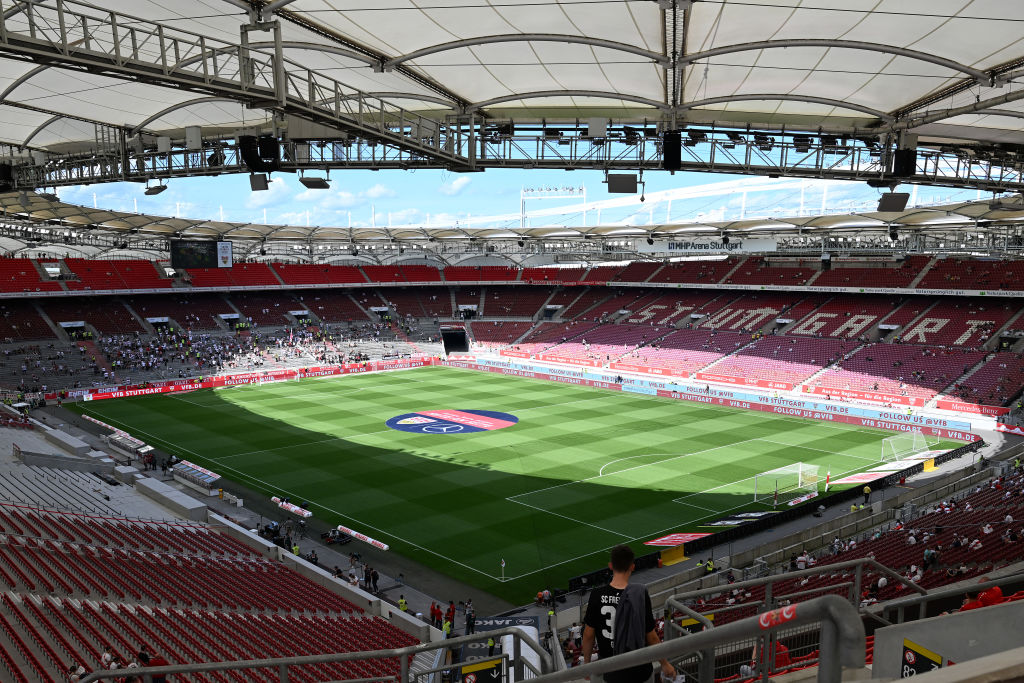
Opened: 1933
Capacity: 51,000
Club: VfB Stuttgart
Euro 2024 highlight: Scotland vs Hungary
Oh, the things that the MHPArena has seen. One of the first European Cup finals, athletics championships – both European and world – and of course, fixtures in West Germany/Germany's three previous major tournaments in 1974, 1988 and 2006.
Germany's first game after World War II in 1950 against Switzerland was played here, as was Die Mannschaft's third-place play-off in 2006.This place has some very happy memories for Germans – something they'll be hoping to evoke when they face Hungary in Group A this summer.
Did you know? The venue for Klaus Fischer's Goal of the Century overhead kick against Switzerland in 1977 was remodelled in 2009 featuring a distinctive fabric roof.
More Euro 2024 stories
Every Euro 2024 squad: All the teams previewed
Euro 2024: Everything you need to know about the little car

Ed is a staff writer at FourFourTwo, working across the magazine and website. A German speaker, he’s been working as a football reporter in Berlin since 2015, predominantly covering the Bundesliga and Germany's national team. Favourite FFT features include an exclusive interview with Jude Bellingham following the youngster’s move to Borussia Dortmund in 2020, a history of the Berlin Derby since the fall of the Wall and a celebration of Kevin Keegan’s playing career.
